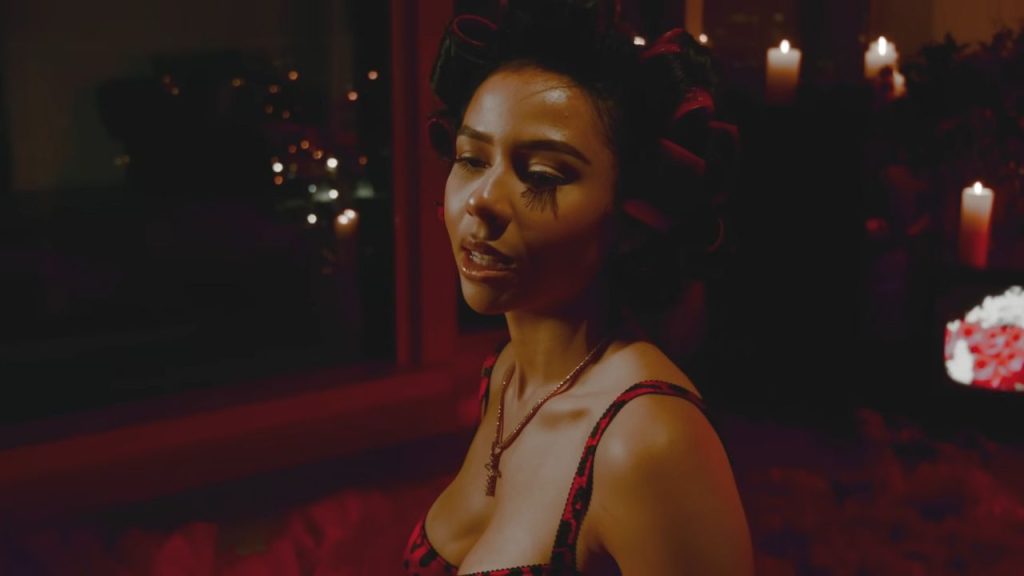
Mariah The Scientist challenges the confines of music genres, especially her classification as an “R&B” artist. In a recent interview, the Atlanta singer questioned the genre definitions and why artists are often labeled based on race and themes. She’s even contemplating a new “A&B” genre that blends alternative and blues, as she seeks to redefine her music identity.
R&B To ‘A&B’?
Mariah The Scientist is speaking out against the racialization of music genres, particularly in the case of her categorization as an “R&B” artist. In a recent interview with Complex Magazine, the “Spread Thin” singer questioned the definitions of R&B and alternative, stating:
“Anybody that sings and is Black or like.. They think you might be Black.. They put you in this category of ‘She makes R&B music.’ And it’s like, why, because I’m singing about this, and it’s like..What really defines R&B? What does that mean? Or like what really defines alternative?” She continues, ‘If Lana Del Rey is singing about heartbreak, why is her album categorized as alternative? And then like, I put some music out and it’s automatically supposed to be R&B. What if it’s neither of those?”
Mariah The Scientist is speaking out against the racialization of music genres, particularly in the case of her categorization as an “R&B” artist.#hiphop #hiphopnews #music #musicnews #rapnews #sohh #sohhdotcom #sohhnews #mariahthescientist #randb #musicgenres pic.twitter.com/CGSN9xZobO
— SOHH.com (@sohhdotcom) October 27, 2023
The singer also expressed her desire to create a new genre called “A&B,” blending alternative and blues, where it’s a genre she feels she’ll fall into. While alternative R&B already exists as a category, Mariah seeks to carve out her own space within it.
Her single, “From A Woman,” has garnered attention and anticipation for her newest album, To Be Eaten Alive, which was released on Oct. 27, which coincided with her birthday.
Racialization In Music
Mariah The Scientist’s critique of genre labeling in the music industry is not an isolated incident.
Other artists, such as FKA Twigs and Frank Ocean, have also expressed their frustration with being categorized as “alternative R&B” artists based on their race. Generally, alternative R&B is categorized as a new sound of “non-traditional, contemporary” R&B.
FKA Twigs, in a 2014 interview with The Guardian, pointed out how her mixed-race background affected her genre classification, stating:
“When my picture came out, now she’s an R&B singer… But you’re not talking about that because I’m a mixed-race girl from south London.”
Similarly, Frank Ocean shared in a 2011 interview with The Quietus stating:
“R&B is largely black music, and any guy that’s in his 20s especially coming out and singing anything near that field of things automatically gets called that, because it’s the first thing that comes to mind. I imagine it’s the same here. I’m not from here so I don’t really know how it is out here, and how people talk and radio and how things are marketed out here. But in America, it’s the first thing that comes to mind. If you’re a singer and you’re black, you’re an R&B artist. Period.”
MTV: Back in the Day
The discussion around marginalized genres extends beyond personal experiences. The term “R&B” itself has historical roots in the racialization of music.
According to The Library of Congress, the songs of America, “rhythm and blues” emerged as a replacement for the term “race music” in the 1940s, becoming a general marketing term for African-American music. The marginalization of music genres has persisted over the years, with artists like Michael Jackson challenging mainstream media outlets like MTV for their lack of representation of Black artists in the 1980s.
Jackson became the first Black artist to be aired in heavy rotation on MTV, with “Billie Jean.” Prior to the King of Pop’s major milestone, the iconic David Bowie voiced his concern in a 1983 interview, questioning why there were so few Black artists featured on MTV. Bowie stated:
“It occurred to me having watched MTV over the last few months that it’s a solid enterprise,It’s got a lot going for it. I’m just floored by the fact that there’s so few black artists featured on it. Why is that?” He then continued saying, “There seem to be a lot of black artists making very good videos that I’m surprised aren’t being used on MTV.”
Ongoing Comparisons Of Taylor Swift & Beyoncé
The debate surrounding racialized genres in mainstream media continues to spark controversy. In a similar vein, the ongoing comparison of Taylor Swift to Black artists like Beyoncé and MichaelJackson raises questions about how white artists are positioned and discussed in relation to their Black counterparts.
